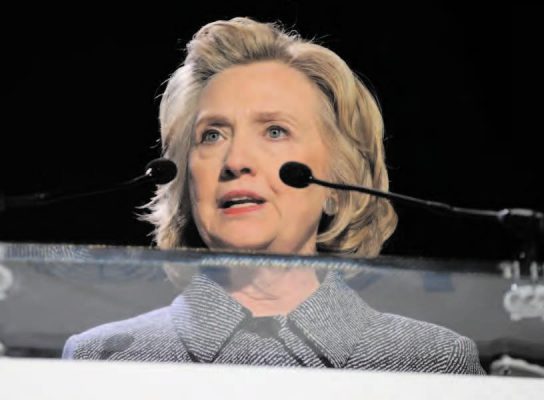NEW YORK (TIP): Neither Hillary Clinton nor anyone working for her read tens of thousands of emails she stored on a private server to identify personal emails before she deleted 31,830 of them, says a report in Daily News.
Lawyers for the former Secretary of State instead used a simple series of keyword searches to review the emails, Time Magazine reported. The attorneys used the search results to divide Clinton’s 62,320 messages between official emails, which she handed over to the State Department last year after they requested them, and those Clinton deemed “personal and private.” Clinton said on Tuesday, March 10, she deleted all those personal messages she “had no reason to save them.”
The news is sure to raise doubts among critics who suspect Clinton’s aim in maintaining a personal server and deleting material was to keep important official communications she made as Secretary of State, and potentially damaging information, out of the public eye as she prepares for a 2016 presidential campaign. She is expected to officially launch her bid next month.
Clinton did not mention the rudimentary search process during a news conference she held Tuesday on the email scandal.
The former New York senator claimed the review was “thorough” and went “above and beyond” what requirements she faced before releasing them.
“We went through a thorough process to identify all of my work-related emails and deliver them to the State Department,” Clinton said.
She insisted all other emails were personal and related matters like “yoga routines,” “family vacations,” and planning her daughter Chelsea’s wedding.
According to Time, which cited Clinton aides, her emails were searched through a four-step process.
First, lawyers searched emails Clinton received from a .gov or state.gov account from 2007 to 2013, while she served as secretary of state.
Then they searched remaining emails for names of 100 State Department and other U.S. government officials Clinton may have corresponded with during her tenure.
Next, the emails were reviewed by sender and recipient to “account for non-obvious or non-recognizable email addresses or misspellings or other idiosyncrasies.”
Lawyers searched the emails still left over for a “number of terms” including “Benghazi” and “Libya.”
The results of the searching were that Clinton’s attorneys found 30,490 work-related emails and 31,830 emails that were deemed “private and personal.”
